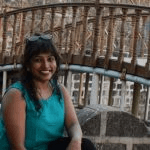
Suchitha Champak
Breast cancer is no longer one disease. It has multiple sub-types and so its heterogeneity is a big challenge worldwide. Over and above, India being a diverse nation that it is, in terms of cultural practices, food habits and also with genetic diversity at its core, it is certain that there cannot be a magic bullet to cure cancer. While the whole world is battling cancer with various challenges, India itself has its own needs that require special attention. A recent study to look at breast cancer awareness in India found many reasons for the delay in diagnosis. India being a cultural and religious country, discussing the subject amongst family is a taboo. Women do not access health care services because of their reluctance to visit a male physician and are dependent on other family members to seek medical help. Heterogeneity at different levels is the biggest challenge scientists in research and professionals in the healthcare sector are facing worldwide. Thus to challenge this diversity, the recent trend picked up for treating cancers better is to focus on catching the culprit early i.e. to find precision diagnostic methodologies in early diagnosis and intervention. CORE Diagnostics Pvt Ltd is one among them. CORE strives to leverage the growing shift to earlier cancer diagnosis and evidence-based medicine in India and developing countries.
In all cancer types, early diagnosis and intervention becomes pivotal in defining the course of treatment and recovery. Better approaches, technology services for diagnosis are always a need for the society to be able to mitigate mortality due to late or no diagnosis. Mortality due to breast cancer can significantly be reduced when early intervention methods are deployed in effective ways. India still has a long way to go considering various limiting factors such as little or insufficient infrastructure, cost effective services, or in general, providing better access to the facilities that are already available.

How can we make healthcare more affordable?
Today, Education, Awareness about the disease and Access to better healthcare (EA&A) are the bare essentials necessary for us to thrive as healthy individuals. In our society, these bare essentials are not at the disposal for a large proportion in the country for various reasons, beginning from incomplete governmental impositions to lack of self-care. These caveats formulate the basis of the next important steps that needs emphasis to grow into a healthy society. Dr Alben suggests that by creating self-help groups, strengthening regulations for bio-similars, easing the regulations on the use of ultrasound for breast cancer and many more small yet significant actionable steps can help people get what they deserve – EA&A. One of the most important concepts according to Aparna that still needs incorporation into mainstream treatment is GARD, Genome Adjusted Radiation Dose. This concept goes by the principle that a higher dose of radiation does not necessarily have better therapeutic effects on different types of tumours and also on the same type of tumour in different patients. This creates the need to personalise treatment for every patient. The most important thing to understand at present is that, these molecular tests should be taken as the next step in early-stages and not as a substitute for conventional diagnosis.

Spreading awareness about the disease is crucial
Educating people and creating awareness about the early symptoms of breast cancer and teaching breast self-examination through community nurses {Accredited social health activist (ASHA)} can tackle the problem of early diagnosis substantially and overcome cultural barriers. Creating awareness in schools, educational institutions and conducting advertising campaigns via mainstream media will also help to raise awareness in young women. Working women in cities like Mumbai, Delhi and Bengaluru are at a higher risk of developing breast cancer. Lifestyle changes like healthy eating habits and daily exercise, avoiding tobacco and limiting alcohol are easy, effective and simple ways to decrease the likelihood of developing breast cancer.





